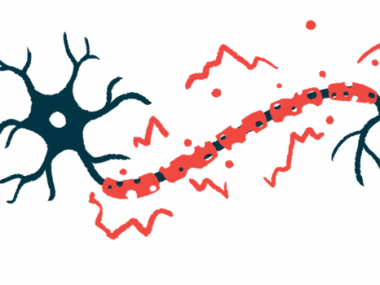Learning to Grow Through What I Go Through With FA
Written by |

A few weeks ago, I fell and fractured my foot. The recovery process, thankfully, hasn’t been too painful. It has, however, been unexpectedly emotional.
The truth is, I am not at all surprised that I fell. My Friedreich’s ataxia (FA) symptoms have been progressing quickly and felt insurmountable and undeniably disruptive lately. In recent months, my usual arsenal of tools and compensation methods, which I depend on to overcome my disability and live the life that I want, haven’t felt like enough.
Even with my walker, I have felt unsteady and unsafe. My fatigue is the worst it’s ever been. My arms have gotten weaker and less coordinated. In short, my disability is noticeably progressing despite all of my efforts, and I am overwhelmed by it. My fall and the resulting foot fracture felt inevitable. I am thankful it wasn’t worse.
As I recover from my fracture, people keep encouraging me by saying, “Don’t worry, you will be back to normal in no time!”
While I appreciate their encouragement and faith in me, the sentiment is having the opposite effect than desired. I’m realizing that I don’t want to be like I was before, and the fact that my before is the “better” I’m striving for is incredibly disheartening.
What I desperately want is to be all better. No broken foot, and more importantly, no FA. I want the cause of this fall to heal and become nothing but a memory, just like the effect.
I have the unrealistic expectation that, as I recover and relearn how to walk, I will just keep recovering, surpassing where I was before my fracture, and be a normal, healthy, nondisabled 34-year-old — not a woman who struggles to stay on her feet, even with constant assistance.
In reality, I probably won’t even return to where I was before my fall because of the relentless nature of FA. While this injury hit the disruptive pause button in my life, my FA symptom progression did not pause. If anything, it will have sped up because I haven’t been able to do my daily workouts, weekly physical therapy, and basic, active duties.
I have been struggling to find motivation to rally around as I tackle this recovery. I have settled on the saying “Grow through what you go through.”
Yes, I am going through an unfortunate fracture recovery. Yes, I will continue to go through FA symptom progression. But I can grow through that.
While I am increasingly losing control over what my body goes through, I can grow in other ways. I can grow my resilience, resolve, emotional depth and awareness, intentionality, prioritization skills, and sense of humor.
No, I won’t experience super-healing while I put in the work to recover from this fracture, and suddenly become a person without FA, but I can find ways to grow through this experience. I just have to look for those opportunities and seize them.
“We can rejoice, too, when we run into problems and trials, for we know that they help us develop endurance. And endurance develops strength of character, and character strengthens our confident hope of salvation. And this hope will not lead to disappointment. For we know how dearly God loves us, because he has given us the Holy Spirit to fill our hearts with his love.” – Romans 5:3-5 (NLT)
***
Friedreich’s Ataxia News is strictly a news and information website about the disease. It does not provide medical advice, diagnosis or treatment. This content is not intended to be a substitute for professional medical advice, diagnosis, or treatment. Always seek the advice of your physician or another qualified health provider with any questions you may have regarding a medical condition. Never disregard professional medical advice or delay in seeking it because of something you have read on this website.The opinions expressed in this column are not those of Friedreich’s Ataxia News or its parent company, Bionews, and are intended to spark discussion about issues pertaining to Friedreich’s ataxia.







Leave a comment
Fill in the required fields to post. Your email address will not be published.